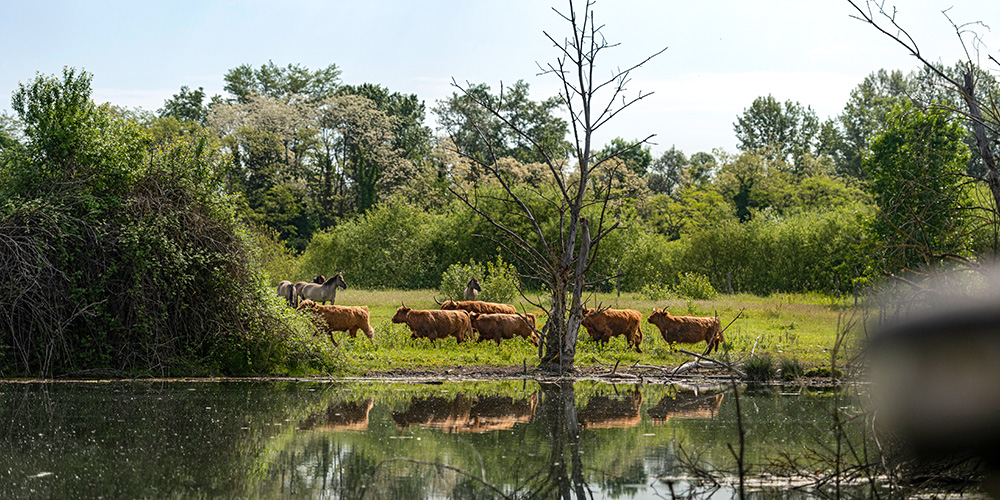Return to nature.
Text: Cornelia Niggli
The Rhine island within the “Petite Camargue” conservation area lies about 10 kilometers down the Rhine from Basel in the Alsace region. This former arable land is the subject of a rewilding project that aims to turn it into a selfsustaining area of meadows and woodland with the support of researchers from the University of Basel.
Alluvial landscapes such as those on the Rhine island are rare in Central Europe. In the absence of flooding, fire or large herbivores, the area would require regular mowing to prevent it from gradually turning into forest — with the accompanying disappearance of plant and animal communities that are adapted to open alluvial landscapes. With this in mind, Konik horses and Scottish Highland cattle were introduced to the island in 2018 as part of a research program under the supervision of Professor Valentin Amrhein.
Amrhein’s doctoral student Lilla Lovász is studying how the grazing of horses and Highland cattle affects the flora and fauna of the alluvial landscape and especially its bird population. Over a period of several years, she aims to observe the resulting changes in the 32-hectare study area.
The horses and Highland cattle wear tracking devices so that Lovász can track which areas the animals use at what time of the year and how intensely they use them. She also conducts regular surveys of the bird population.
Lilla Lovász from the Department of Environmental Sciences investigates at the
Research Station Petite Camargue Alsacienne the impact of grazing on birds and plants in an alluvial landscape.
Valentin Amrhein is head of the Research Station Petite Camargue Alsacienne and Adjunct Professor of Zoology at the University of Basel.
More articles in the current issue of UNI NOVA.







